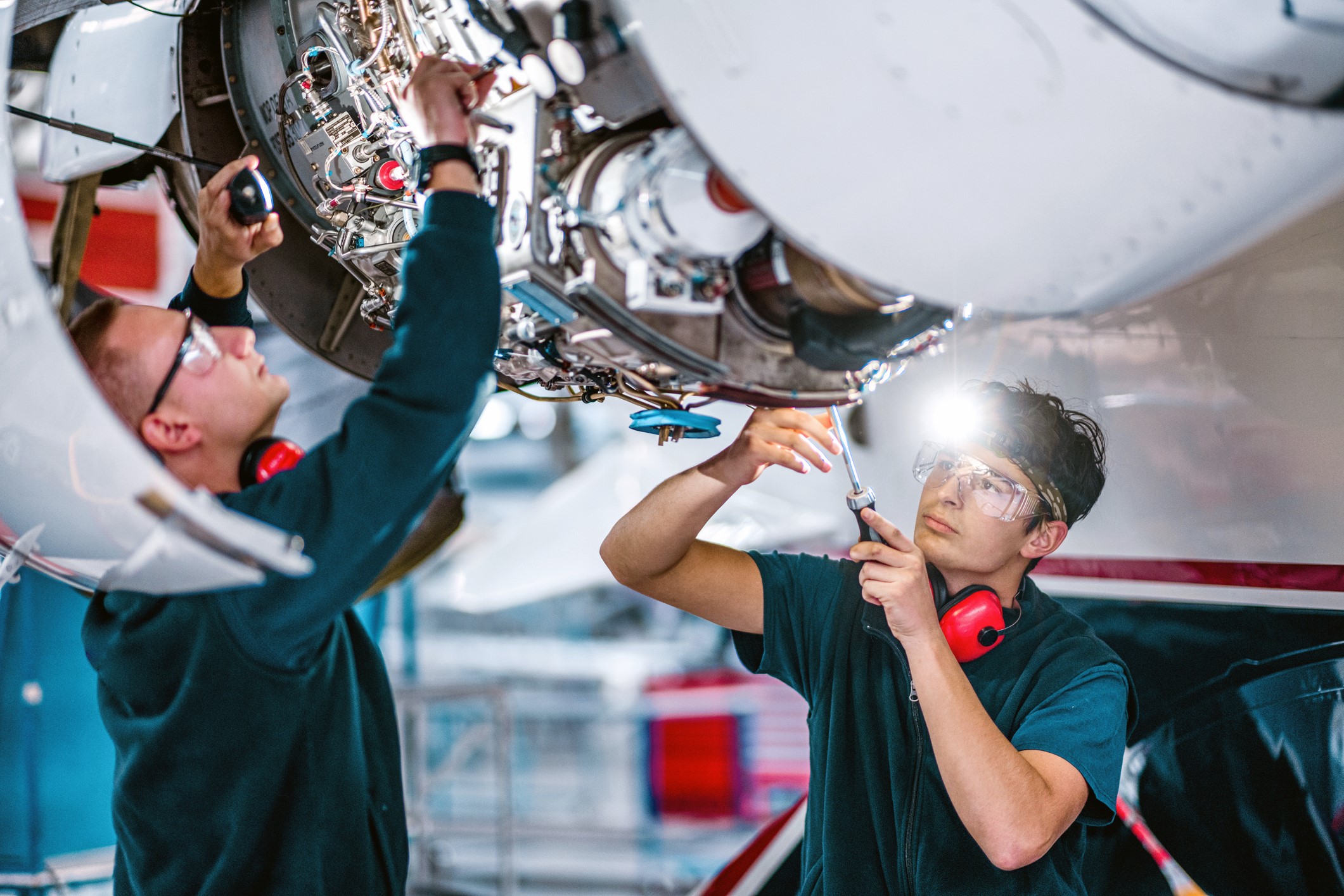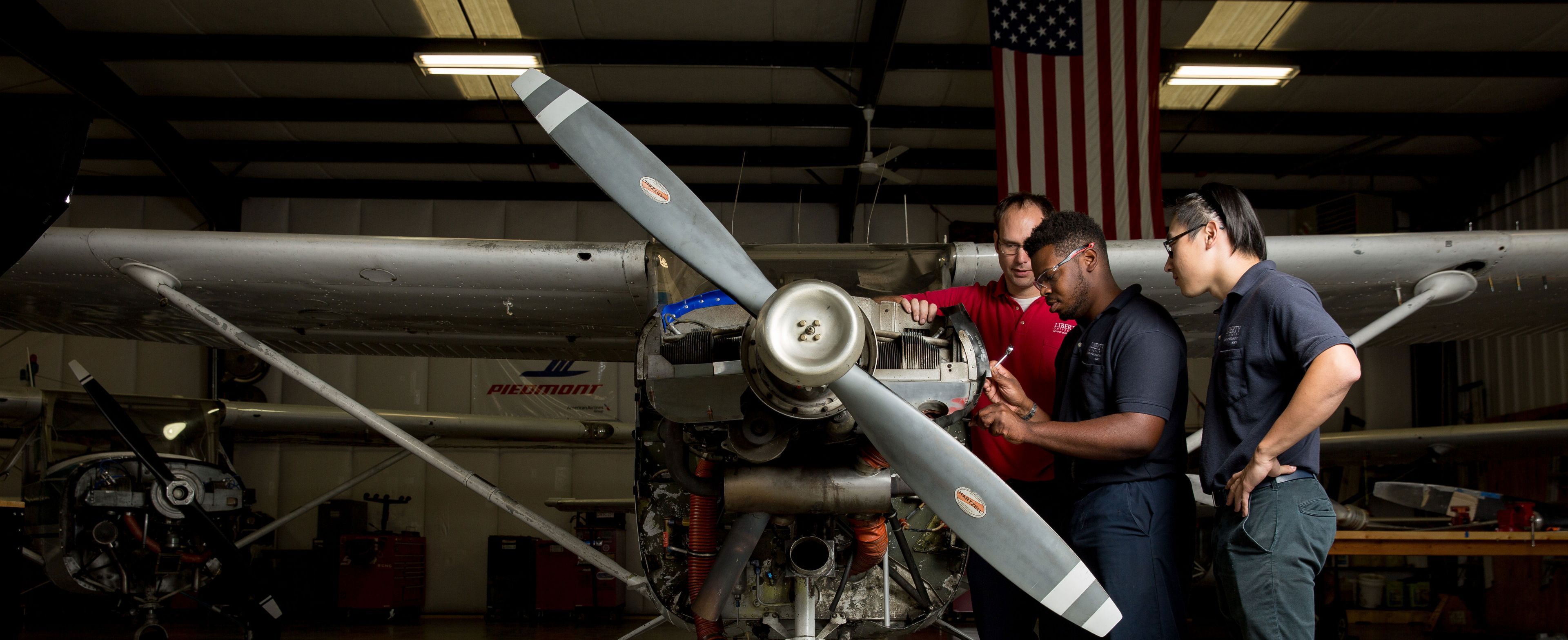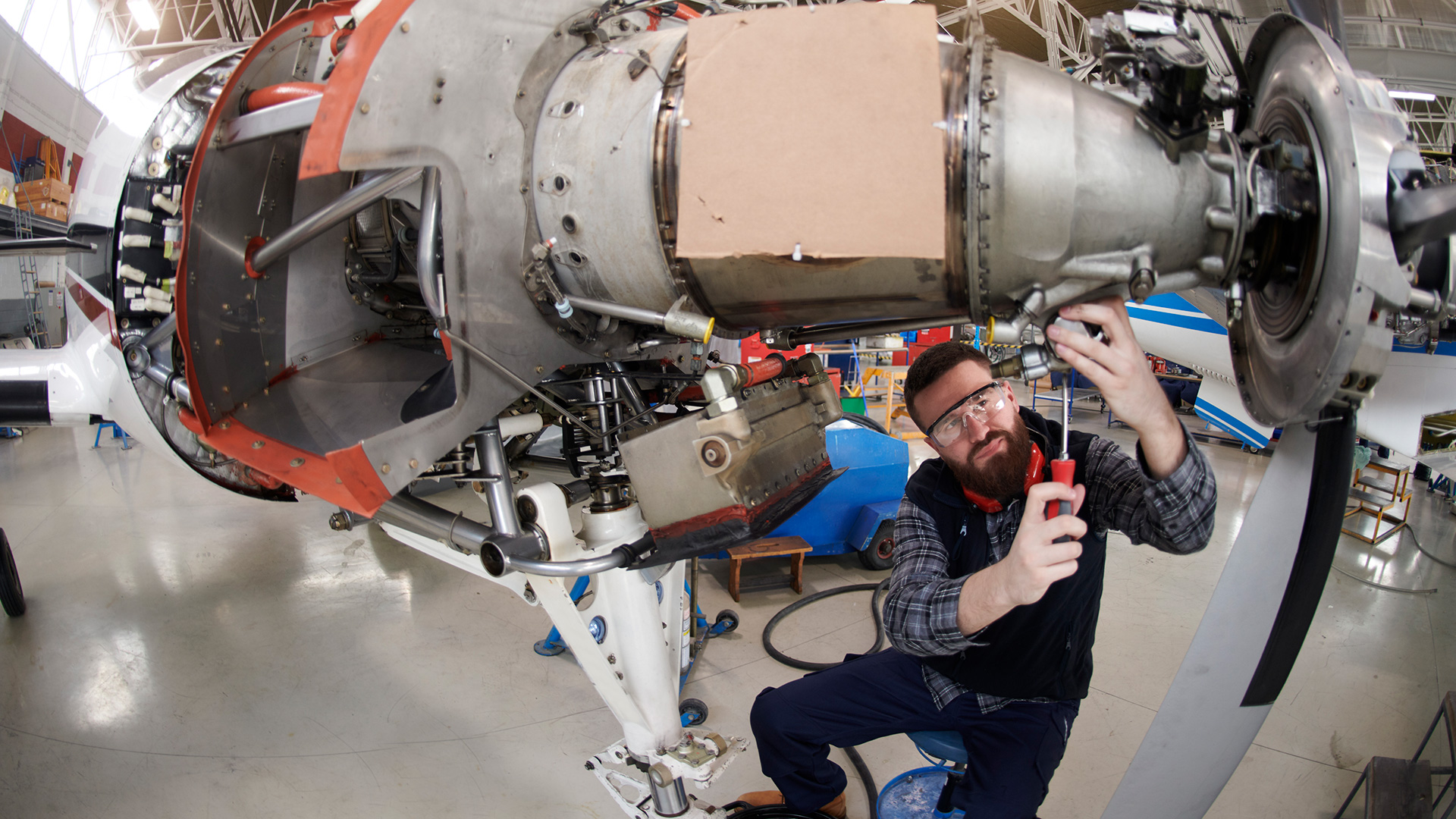Aircraft Technician Mechanical - Employment of aircraft mechanics is concentrated in a small number of industries. The majority work for private companies and about 15% work for the federal government. Aircraft mechanics work in hangars, in repair stations, or on airfields.
Some aircraft mechanics work on many different types of aircraft, such as jets, propeller-driven airplanes, and helicopters. Others specialize in one section of a particular type of aircraft, such as the engine, hydraulics, or electrical system of a jet.
Aircraft Technician Mechanical

In smaller independent repair shops, mechanics inspect and repair various types of aircraft. In terms of aircraft mechanic education requirements, it is advisable to have a strong foundation in technical subjects such as maths and science.

What Is The Workplace Of An Aircraft Mechanic Like?
Although you don't need a license to work as an aircraft mechanic, it is highly recommended to become fully qualified. Mechanics working without a license can only do so under supervision. Airlines, government, private companies, and the military hire aircraft mechanics to repair and perform scheduled maintenance on airplanes and helicopters.
They have an enormous amount of responsibility when it comes to maintaining and inspecting aircraft for service and for meeting safety standards, as it can affect people's lives. Aircraft mechanics play an essential role in the repair and maintenance of aircraft and their components.

They are responsible for performing routine checks on aircraft systems, such as electrical, communications, and hydraulic systems. They are also on-hand to help repair aircraft that have experienced problems or damage. Aircraft mechanics have the opportunity to progress in their careers to supervisory positions where they can manage other mechanics and oversee operations in a hanger.
Depending on the airline employing them, the earnings at this stage in a mechanic's career can be high. Aircraft mechanics inspect mechanical, hydraulic and structural systems and diagnose malfunctions. They use power and hand tools (e.g. saws, grinders) to repair aircraft parts.

What Qualifications Do You Need To Become An Aircraft Mechanic?
For example, they fix broken wings and leaks. Aircraft mechanics also ensure compliance with aviation safety rules and regulations. Most aircraft mechanics who work on civilian aircraft have some sort of official certification. Mechanics that have this certification are authorized to work on any part of the aircraft except electronic flight instruments, which is the job of avionics technicians.
The mechanics are usually employed by an airline, they will specialize in the type of aircraft operated by that airline. Some airlines will, therefore, offer apprenticeships which will provide you with the relevant qualifications for the aircraft and components you will be working with.

For example, the Virgin Atlantic apprenticeship scheme will leave you with two Level 3 National Vocational Qualifications (NVQ) in Aeronautical Engineering and On-Aircraft Maintenance and an EASA Part 66 in the required categories for your role.
To succeed in this role, you must have excellent manual dexterity and stamina. Hands-on experience with complex equipment is also a must-have skill for you. If you are analytical, detail-oriented with a keen interest in mechanics and aircrafts, we'd like to hear from you.

What Is An Aircraft Mechanic?
Aircraft Mechanics are also known as: Aviation Maintenance Technician Aircraft Maintenance Technician Aircraft Technician Aircraft Service Technician Aircraft mechanics usually hold a certification for aviation mechanics (e.g. from the Federal Aviation Administration in the US). Troubleshooting, attention to detail, and manual dexterity are some of the most essential aircraft mechanic skills to have.
Our company is looking for an aircraft mechanic to ensure aircrafts operate properly and securely, based on regional safety regulations. Your primary responsibilities include maintaining and repairing system components. You'll detect malfunctions and fix them using power and hand tools.
You will not be alone in this; you'll work closely with your supervisor and other mechanics to deliver quick and efficient solutions. As there are many different types of aircraft used in the aviation industry, many aircraft mechanics specialize in particular areas.
For example, those who specialize in avionics will focus on electrical systems and structural mechanics will work on airframe components. Aircraft mechanics have distinct personalities. They tend to be realistic individuals, which means they're independent, stable, persistent, genuine, practical, and thrifty.
What Does An Aircraft Mechanic Do?
They like tasks that are tactile, physical, athletic, or mechanical. Some of them are also conventional, meaning they're conscientious and conservative.
what do aircraft mechanics do, plane mechanics, types of aircraft mechanics, aircraft mechanic unskilled labor, aircraft mechanics and service technicians, air craft mechanical, aircraft mechanic bls, airline mechanics
0 Comments